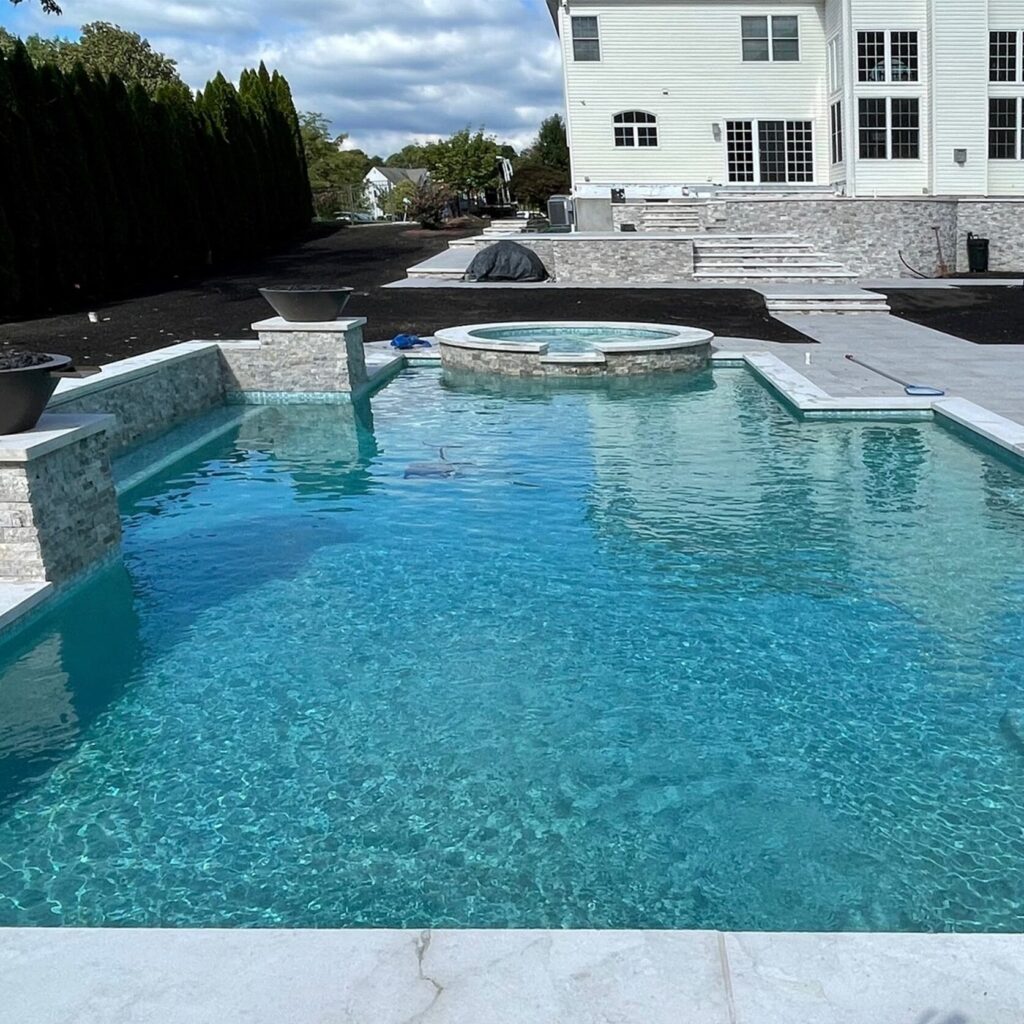Gunite pools are a popular choice for swimming pool construction because they offer a number of benefits over other types of pools. Gunite is a type of concrete that is mixed with sand and water and is sprayed onto a metal rebar frame using a high-pressure hose. The gunite is then smoothed and finished to create a durable, long-lasting pool surface. In this blog, we will explore everything you need to know about gunite pool construction, including the benefits of gunite pools, the construction process, and maintenance considerations.
Benefits of Gunite Pools
There are several advantages to choosing a gunite pool over other types of pools. Here are a few of the most significant benefits:
Durability
Gunite is an extremely durable material, making it well-suited for pool construction. Gunite pools can last for decades with proper maintenance, and they are resistant to cracking, chipping, and other forms of damage.
Customization
Gunite pools can be shaped and sized to fit any space, making them a great choice for homeowners who want a pool that is tailored to their specific needs and preferences.
Aesthetics

Gunite Pools are durable and energy efficient
Gunite pools can be finished in a variety of ways to achieve the desired look and feel. The finish can be smooth and polished for a classic look or textured for a more natural appearance. A wide range of color options, finish additives, and tile mean your pool can match any style or look imaginable.
Energy Efficiency
Gunite pools are known for their energy efficiency. They are able to retain heat well, which means they can be heated to a comfortable temperature with less energy than other types of pools.
Construction Process
Building a gunite pool involves an extensive construction process, which we will outline below:
Design
The first step in the construction process is to design the pool. This involves determining the size and shape of the pool, as well as the location and any additional features that will be included, such as waterfalls or swim-up bars. At this point in the process, a topographical survey will be conducted and a structural engineer will put together a plan that will work with your property’s elevations.
Excavation
The next step is to excavate the area where the pool will be built. This involves removing dirt and other materials to create the hole for the pool. The hole is dug following the plan provided by the engineer and will mimic the overall finished shape.
Rebar
Once the hole has been excavated, a metal rebar frame is constructed to provide structural support for the gunite.
Gunite Application
The gunite is mixed with sand and water, and is sprayed into the rebar frame using a high- pressure hose. The gunite is then smoothed and finished to create a smooth, durable surface.
Tiling
If tile accents have been selected for your process, they will be installed at this point in the process. Tiles can create beautiful waterline borders, accent trim on steps and features, or even cover entire steps or spas.
Finishing
The final step in the construction process is to apply the desired decorative finish to the pool surface. This can be a smooth, polished finish, or a textured finish for a more natural look.
Start up
Although the construction is complete at this point, the start up process is important to note, as it is a 28 day process. During this phase, the pool finish is hydrating and must be brushed on a daily basis and particular chemicals must circulate to allow it to cure properly. Mishandling the start up can result in a costly re-plaster and several weeks added to the already lengthy process.
Maintenance Considerations
Maintaining a gunite pool is important to ensure that it stays in good condition and continues to function properly. Here are a few key maintenance considerations:
Water Chemistry
Proper water chemistry is crucial for maintaining a healthy, safe pool. This involves monitoring pH, chlorine levels, and other chemical parameters to ensure that the water is properly balanced. Unbalanced water can take years of life off the pool finish, corrode tile, and destroy pool equipment.
Cleaning
Regular cleaning is also important to keep the pool looking its best. This involves removing debris from the water, as well as scrubbing and vacuuming the pool surface to remove dirt and algae.
Repairs
Over time, gunite pools may develop cracks or other types of damage. It is important to address these issues as soon as possible to prevent further damage and to ensure that the pool remains structurally sound.
In conclusion, gunite pool construction is a popular choice for many homeowners due to its durability, versatility, and customization options. It is important to carefully consider all aspects of gunite pool construction, including budget, design, and maintenance requirements. By working with a reputable contractor and understanding the gunite pool construction process, homeowners can enjoy a beautiful, long-lasting pool for years to come.
